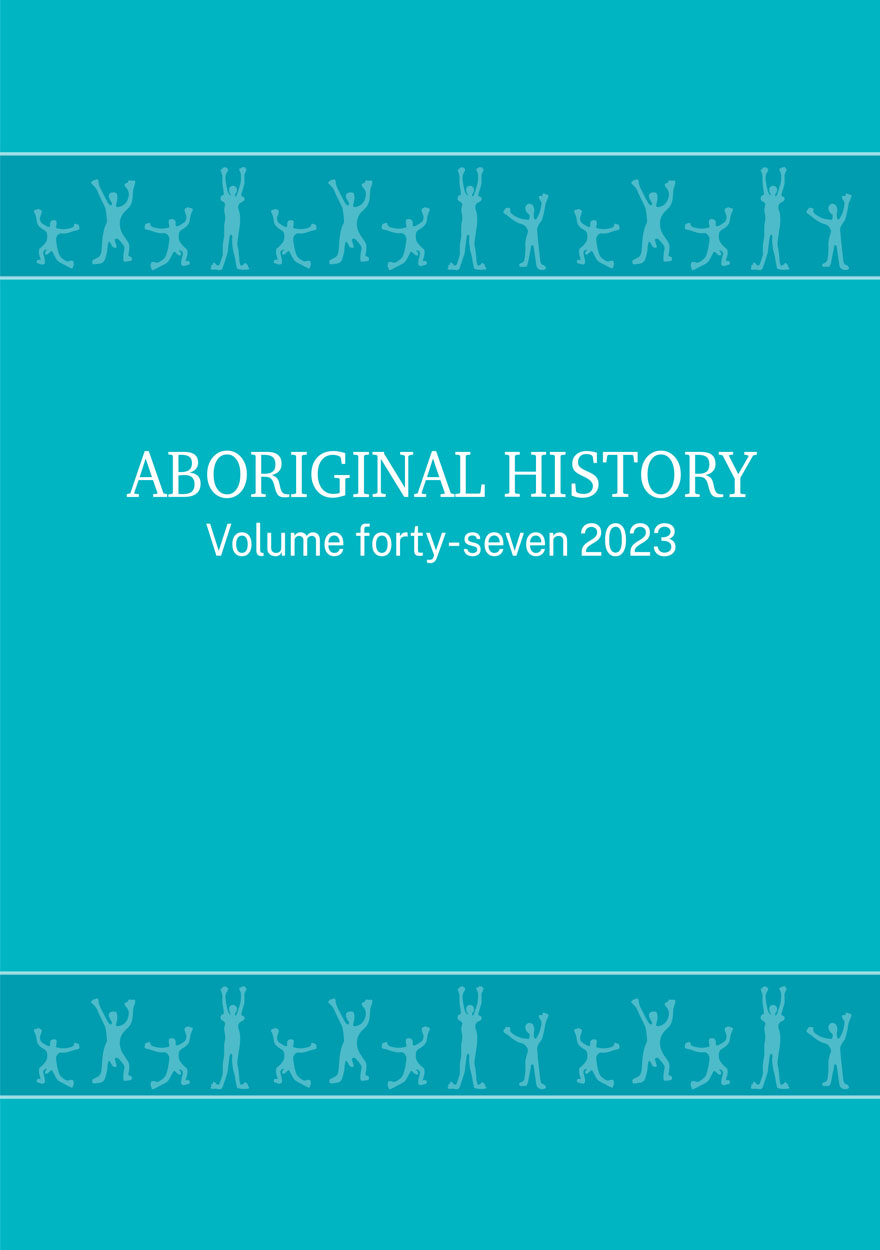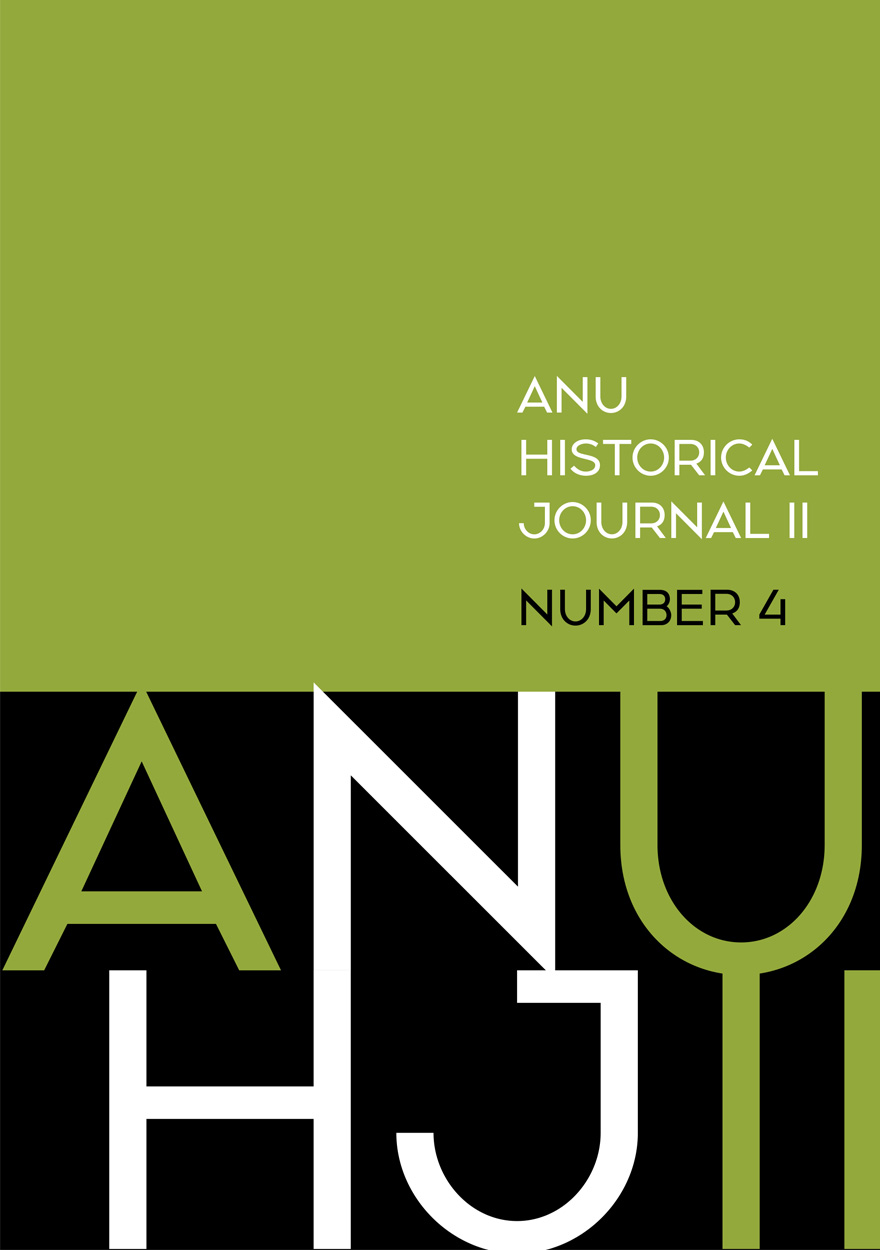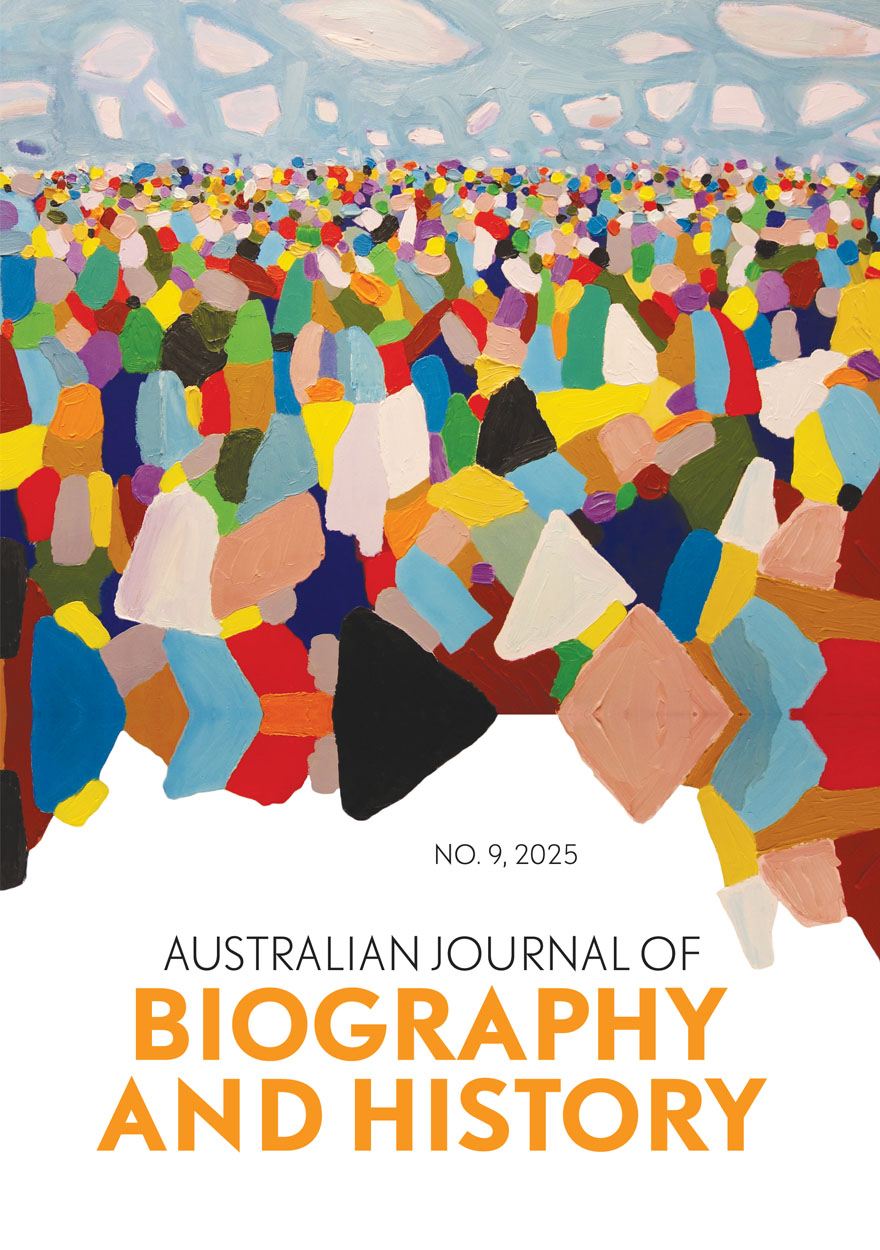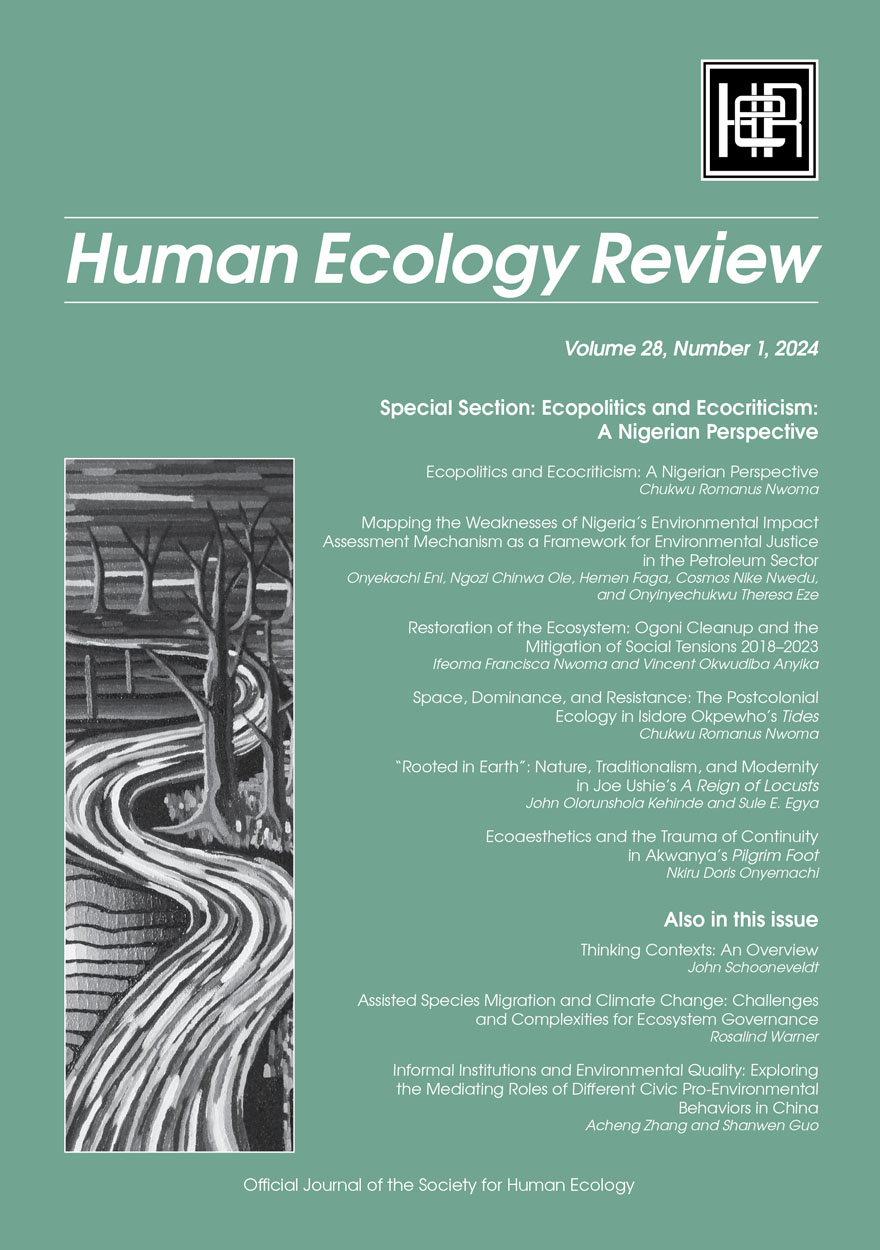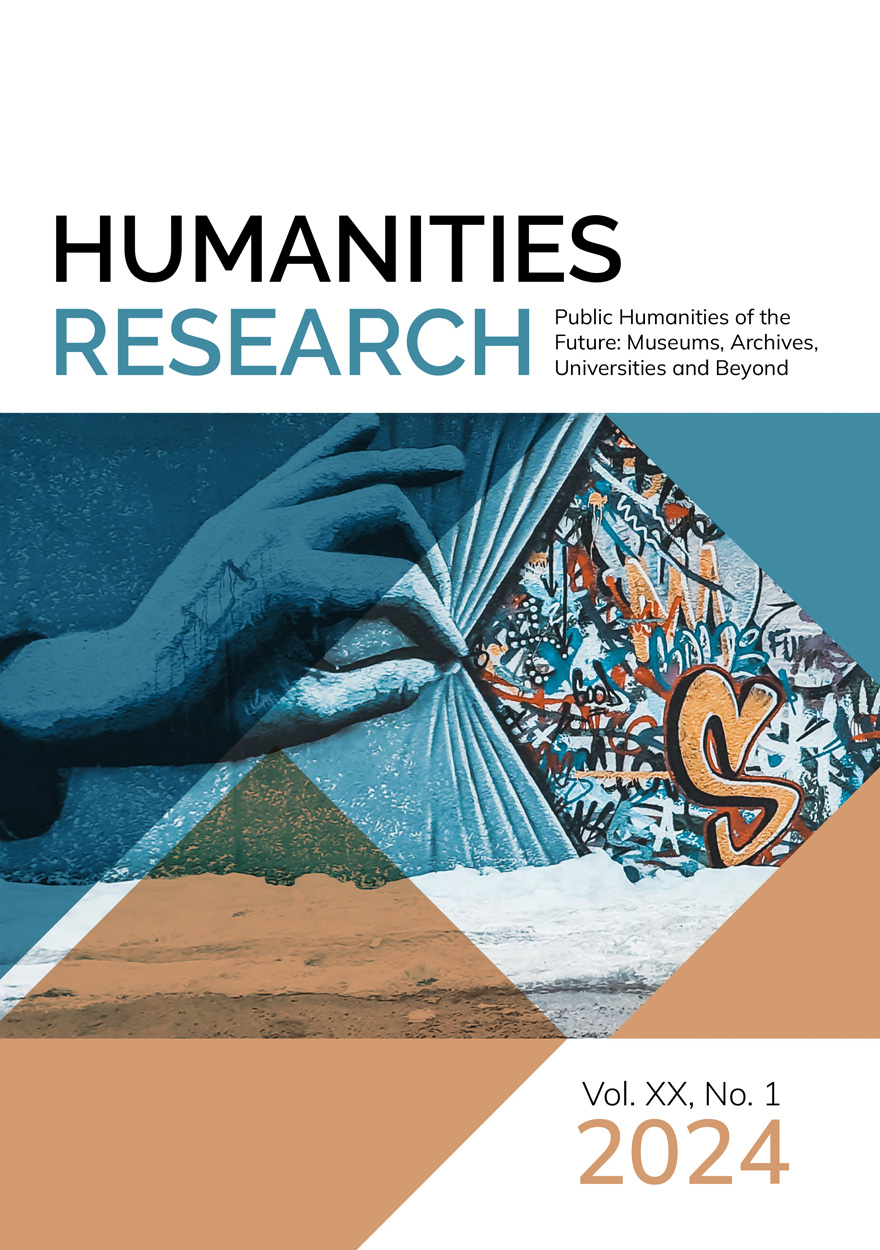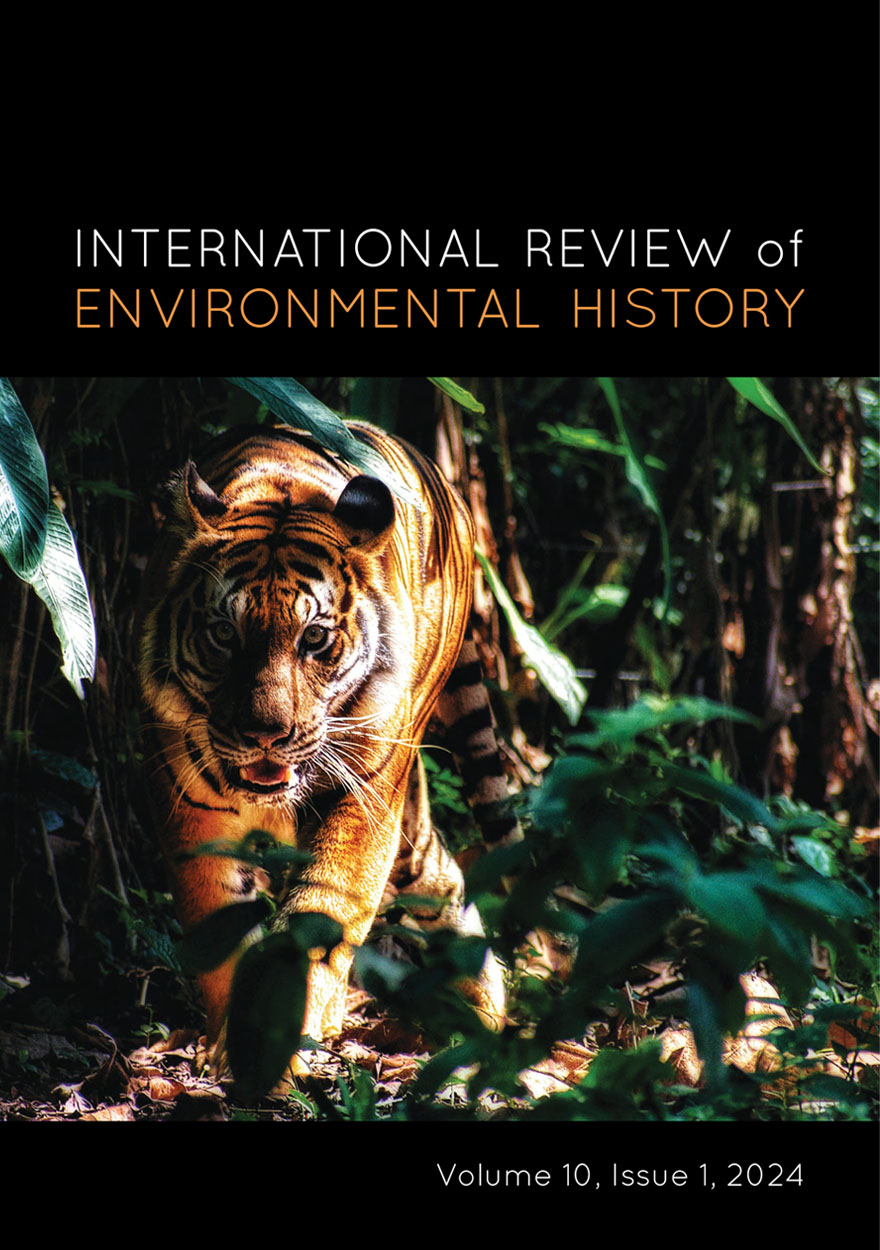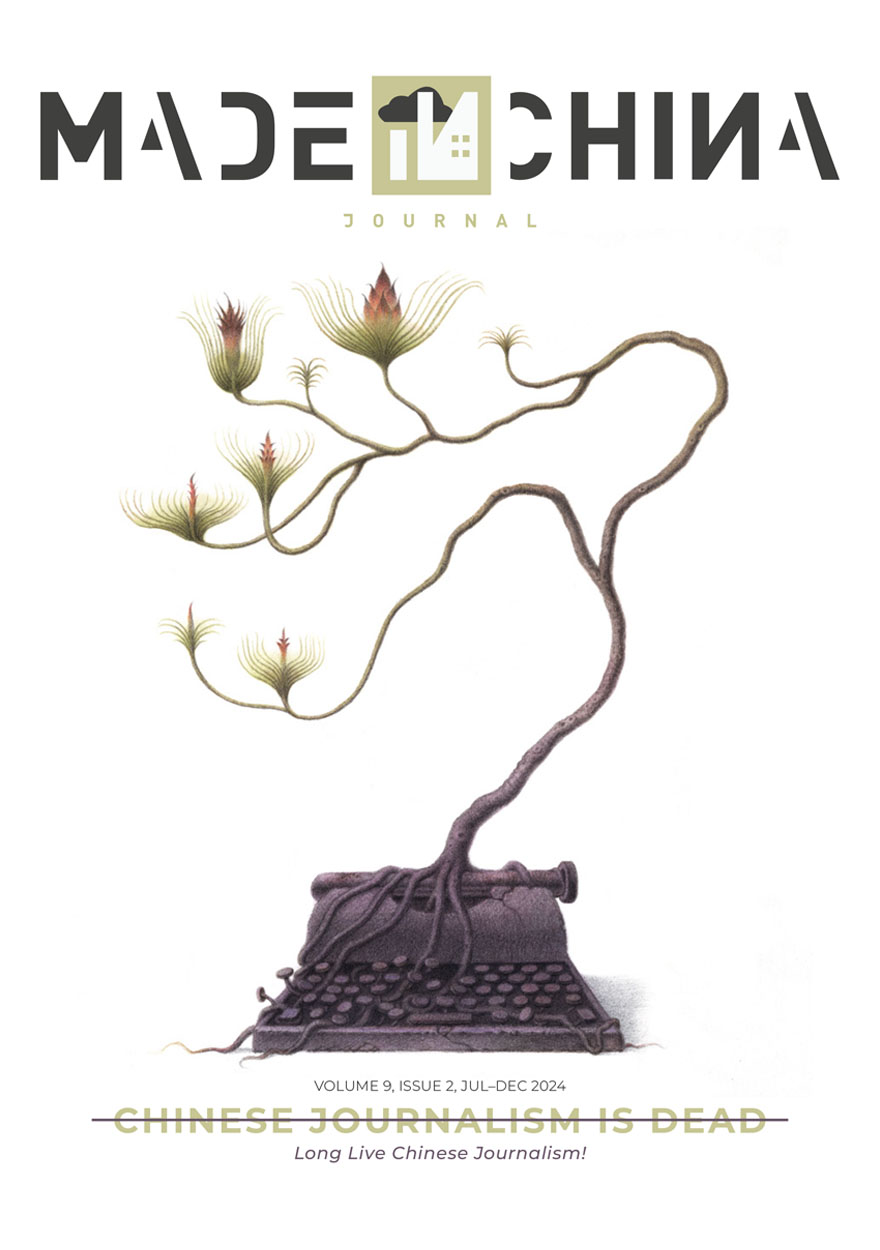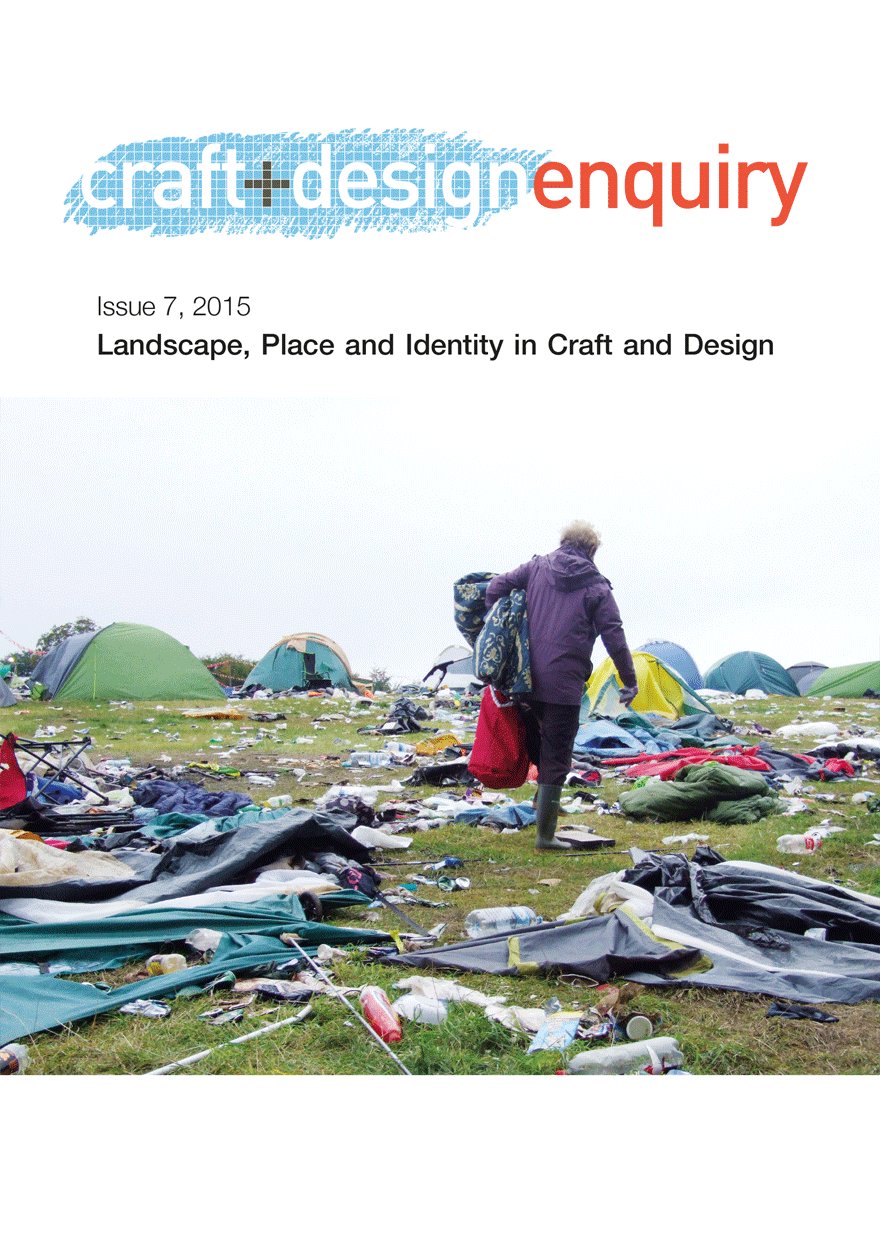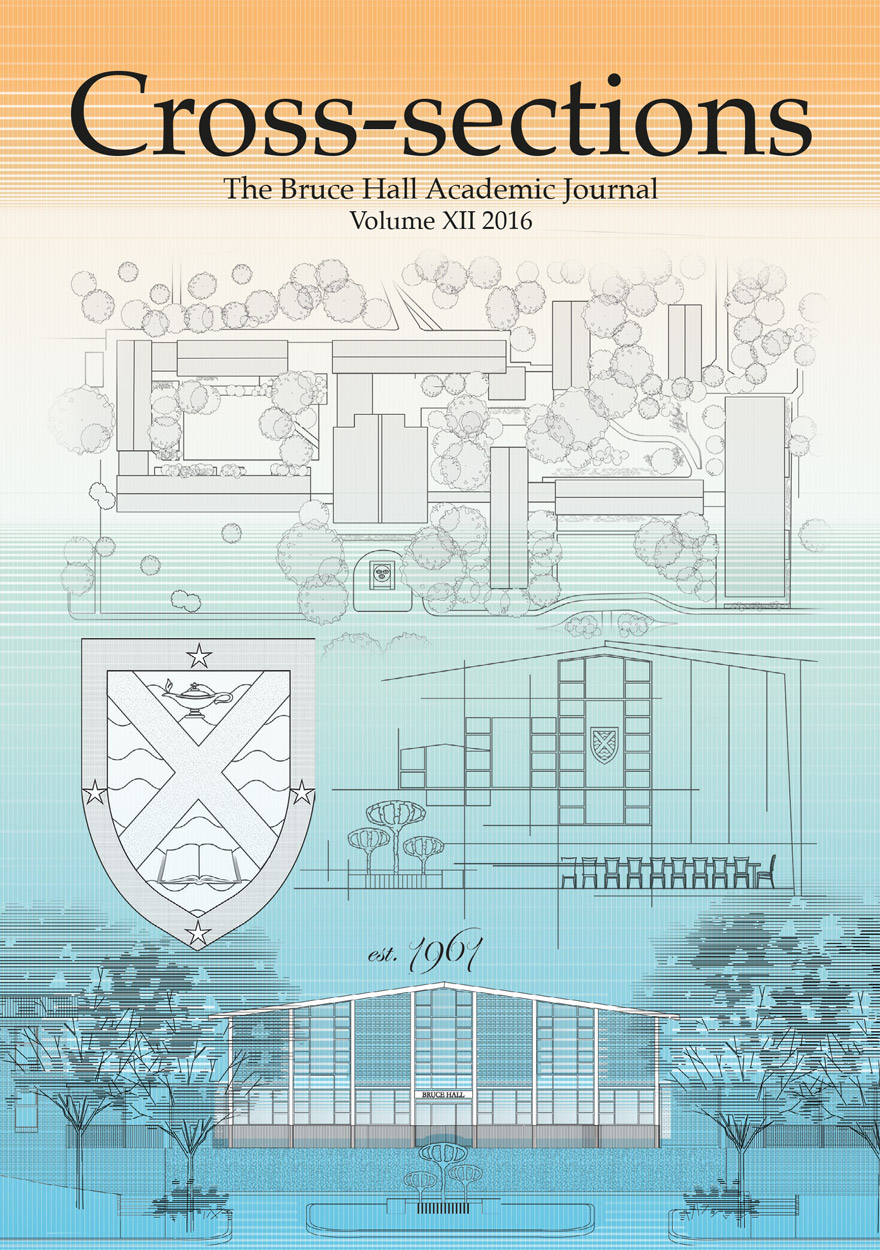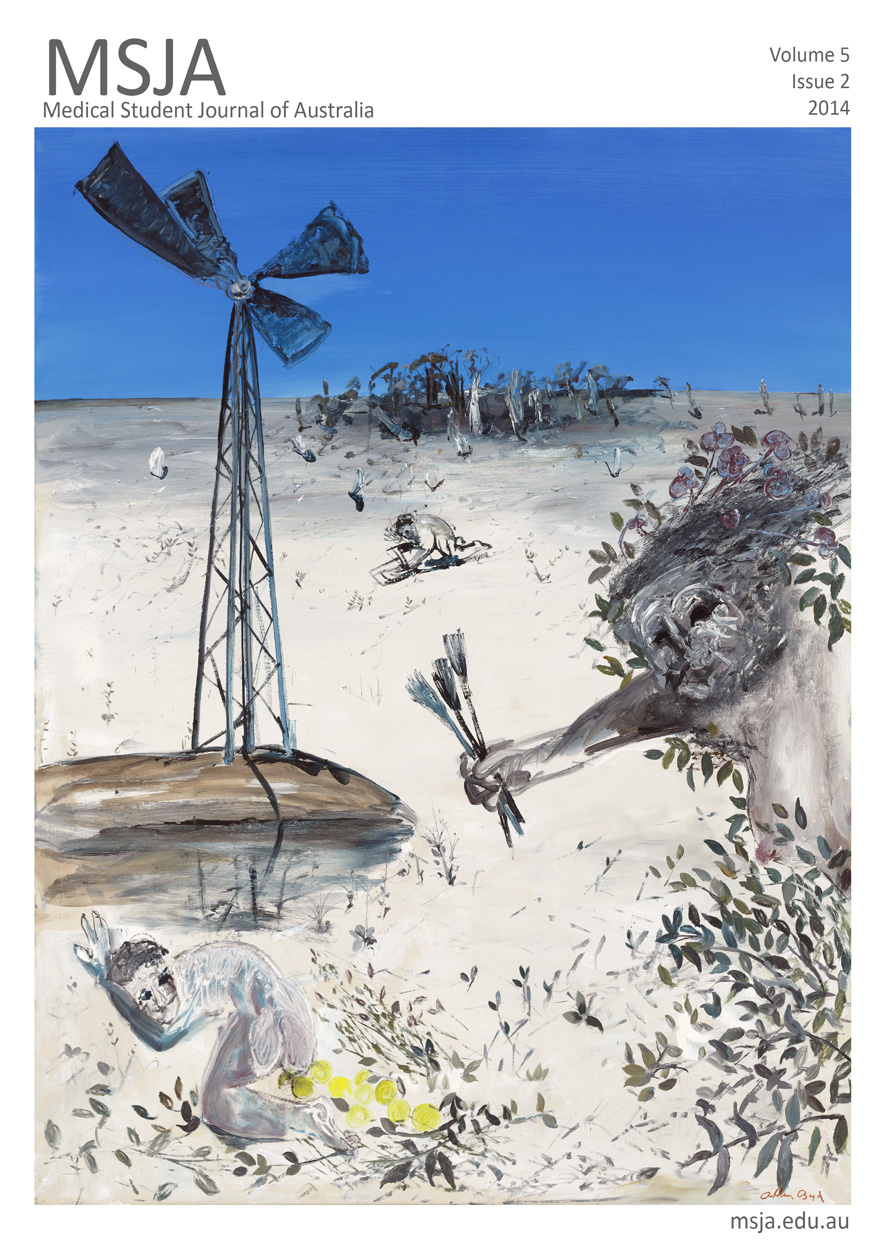Journals
Browse or search a variety of academic journals maintained by ANU Press, or find out more about the journal authors. Download the book for free or buy a print-on-demand copy.
Fiona Gibson »
Fiona Gibson is Research Fellow at the Centre for Environmental Economics and Policy at the University of Western Australia. She received her doctorate from the University of Western Australia in 2011. Fiona is currently working in the space of bushfire management, biodiversity, and water resources. Her research aim is to provide better advice to decision makers on effective policy design and the factors driving community adoption of such policies.
David Salt »
David Salt is the editor of Decision Point, the monthly research magazine of the ARC Centre of Excellence for Environmental Decisions. Decision Point presents news and views on environmental decision-making, biodiversity, and conservation planning and monitoring. Prior to working on Decision Point, David created and produced The Helix magazine for CSIRO Education, Newton magazine for Australian Geographic, Materials Monthly for ANU Centre for Science and Engineering of Materials, and ScienceWise for ANU College of Science.
Hank Nelson »
Hank Nelson graduated from the University of Melbourne. He taught in government schools and at the Royal Melbourne Institute of Technology before being appointed to the Administrative College in Port Moresby in 1966. In 1968 he joined the History Department of the University of Papua New Guinea, where he taught until he moved to The Australian National University in 1973. After initially joining the Research School of Social Sciences, he was appointed in 1975 to the Department of Pacific and Southeast Asian History, where he held various positions before becoming a Professor in 1993. After he retired in 2002 he continued his association with ANU as Visiting Fellow, Division of Pacific and Asian History, Research School of Pacific and Asian Studies, and as Chair of the State, Society and Governance in Melanesia Program. His books include Papua New Guinea: Black Unity or Black Chaos and Taim Bilong Masta: The Australian Involvement in Papua New Guinea. Hank wrote on a wide variety of topics and he and his work are remembered by students and colleagues in The Boy from Boort, published by ANU Press (2014).
Frank Frost »
Frank Frost has a BA Hons and PhD from the University of Sydney and has a long-standing interest in Australian foreign policy and Australia-Asia relations. His doctoral thesis was a study of the politics of the Australian military involvement in the Vietnam war from 1962 to 1972. Until February 2012 he worked as a research director and senior foreign affairs analyst in the Foreign Affairs, Defence and Security Section of the Australian Parliamentary Library in Canberra, where he provided research and policy advice to Members and Senators and to committees of the Australian Parliament. He has also taught politics and international relations at the University of Sydney and been a visiting fellow at the Institute of Southeast Asian Studies in Singapore, and at the Centre for the Study of Australia-Asia Relations at Griffith University in Brisbane.
Frank Frost’s publications include Australia's War in Vietnam (Sydney: Allen & Unwin, 1987) and numerous articles and papers on ASEAN and Australia-ASEAN relations, including 'ASEAN and Regional Cooperation: Recent Developments and Australia’s Interests' (Canberra: Department of Parliamentary Services, 2013). He wrote Engaging the neighbours: Australia and ASEAN since 1974 as a Visiting Fellow from 2012 to 2015 in the Department of International Relations, Coral Bell School of Asia Pacific Affairs, College of Asia and the Pacific, The Australian National University.
Peter J. Hempenstall »
Peter Hempenstall is Professor Emeritus of the University of Canterbury, New Zealand, and Conjoint Professor with the University of Newcastle in Australia. Pacific Islanders under German Rule was his first book, researched in the archives of West and East Germany in the 1970s and in the Pacific Islands. He has written books on Pacific, Australian and New Zealand history, and is the author of three biographies, including The Lost Man: Wilhelm Solf in German History (with Paula Tanaka Mochida). His latest book (Truth’s Fool) is about the anthropologist Derek Freeman and his war with American anthropologists over Freeman’s criticism of Margaret Mead’s research on Samoan society. He lives in Newcastle, Australia.
Timothy J. Macnaught »
Timothy Macnaught was amongst the first graduates of Macquarie University and completed his doctorate, on which this monograph is based, at ANU in 1975. After teaching history at the University of Hawaii for five years, he returned to Australia to serve in senior positions in church secondary schools in Victoria. In 1997 he joined the Office of National Assessments (ONA) in Canberra as senior analyst for the Oceania Branch to prepare classified reports for the Prime Minister and senior ministers. He retired from ONA in 2015.
Daniel Marston »
Daniel Marston BA MA (McGill) DPhil (Oxon) FRHistS is Professor in Military Studies in the Strategic and Defence Studies Centre at The Australian National University. He previously held the Ike Skelton Distinguished Chair in the Art of War at the US Army Command and General Staff College. He has been a Visiting Fellow on multiple occasions with the Leverhulme Programme on the Changing Character of War at the University of Oxford. He has won and been runner-up for the Field Marshal Templer Medal in the UK in 2004 and 2014. He is a Fellow of the Royal Historical Society, UK.
Tamara Leahy »
Tamara Leahy is the Chief of Staff for the Military and Defence Studies Program (SDSC ANU) at the Australian Command and Staff College. In 2011, she was awarded a Bachelor of Arts/Bachelor of Law (Honours) from The Australian National University, where she is currently attempting the Master of Strategic Studies through the Strategic and Defence Studies Centre.
J. Rob Bray »
J. Rob Bray was a Research Fellow at the Research School of Economics and is now a Research Fellow at the Centre for Aboriginal Economic Policy Research at The Australian National University.
Brendan Brady »
Brendan Brady is Project Manager/ Senior Data Analyst, Functioning and Disability Unit at the Australian Institute of Health and Welfare.
Le Anh Pham »
Le Anh Pham is Project Manager, Health Performance Framework Report Project at the Australian Institute of Health and Welfare.
Emma Williams »
Emma Williams is a Visiting Fellow at the Centre for Aboriginal Economic Policy Research at The Australian National University.
Marc F. Oxenham »
Marc F Oxenham is an Associate Professor in the School of Archaeology & Anthropology in Biological Anthropology & Archaeology at The Australian National University. He is currently an Australian Future Fellow with a research focus on human biological responses to major changes in subsistence, technology and mobility in the ancient Southeast Asian past. Marc is also a consulting forensic anthropologist and archaeologist who has worked extensively with Unrecovered War Casualties – Army (UWCA) over the last several years.
Mario Daniel Martín »
Dr Mario Daniel Martín is an Associate Professor in Spanish in the School of Literature, Languages and Linguistics at The Australian National University. He has published academic work related to literature, the practice of creative writing, the use of technology in language teaching, the history of language teaching in Australia, and the sociolinguistics situation of the Spanish‐speaking community in Australia. He led the ANU Spanish program to a prestigious 2012 national Award for a Program that Enhances Learning (Australian Awards for University Teaching).
Louise Jansen »
Dr Louise Jansen is a lecturer and researcher in German and Applied Linguistics at ANU. As a passionate teacher of German, Dr Jansen spearheaded the case study of retention in L&C programs at ANU, on which this monograph is based. She conducts theory-driven data-based research in second language acquisition with a focus on explanations of second language development within the framework of Processability Theory.
Elizabeth Beckmann »
Dr Elizabeth A. Beckmann is an Australian National Teaching Fellow with research interests in academic development, professional recognition of university teachers, and teaching innovations. Based at The Australian National University Centre for Higher Education, Learning and Teaching, she has won multiple institutional and national teaching awards, and leads the ANU Educational Fellowship Scheme.
Marivic Wyndham »
Dr Marivic Wyndham is Senior Lecturer, School of International Studies, Faculty of Arts & Social Sciences, University of Technology, Sydney. With her co-author Peter Read she has published several articles on contemporary Cuban and Chilean societies, all set in the field of place studies and focusing on the themes of custodianship of place and the politics of memorialisation.
Melinda Hinkson »
Melinda Hinkson is Associate Professor of Anthropology and Australian Research Council Future Fellow at the Alfred Deakin Institute, Deakin University, and visiting fellow in the School of Archaeology and Anthropology, The Australian National University. Among her recent publications is Remembering the Future: Warlpiri life through the prism of drawing (Aboriginal Studies Press, 2014).
Stephen Boyden »
Stephen Boyden graduated in Veterinary Science in London in 1947. From 1949 to 1965 he carried out research in immunology in Cambridge, New York, Paris, Copenhagen and Canberra. From 1965 until his retirement he pioneered work on human ecology and biohistory at The Australian National University (ANU) and in UNESCO’s Man and the Biosphere Programme. In the 1970s he initiated and directed the Hong Kong Human Ecology Program, which was the first comprehensive study of the ecology of a city. After retirement (1991) he established and worked with the Nature and Society Forum — a community-based organisation concerned with the well-being of humankind and the environment. He has authored and co-authored many books and articles on biohistory and urban ecology. At present he is Emeritus Professor in the Fenner School of Environment and Society, ANU.
Sudrishti Reich »
Sudrishti Reich is a senior lecturer in the Migration Law Program of ANU College of Law, The Australian National University. She has a long-standing interest and expertise in migration law, and practised as a registered migration agent and solicitor in the field since 1997. From 1997 to 2002, Sudrishti was the principal solicitor of the specialist community legal centre Immigration Advice and Rights Centre in Sydney. She is author of two editions of the immigration law practitioners’ bible: The Immigration Kit. Since leaving legal practice, Sudrishti has focused on teaching and developing courses in Australian migration law, and pursuing research interests in migration law and professional identity of migration agents. She teaches and develops courses within the Graduate Certificate in Australian Migration Law, and the Master of Laws in Migration Law. Sudrishti is General Editor of Immigration Review, published by LexisNexis.
Dorota Gozdecka »
Dorota Anna Gozdecka completed her PhD in legal theory in 2009 at the University of Helsinki, and has recently obtained the title of docent (adjunct professor) of jurisprudence from the same university. Her primary research area focuses on legal theoretical aspects related to the accommodation of cultural diversity. Her recent publications — such as Identity, Subjectivity and the Access to the Community of Rights, a special issue of Social Identities (2015), the monograph Rights, Religious Pluralism and the Recognition of Difference: Off the Scales of Justice (2015), and the edited volume Europe at the Edge of Pluralism — explore, in particular, questions of otherness created by contemporary legal regimes. Issues related to the recognition of difference and the place of the other have recently led her to shift her research focus to the area of law and humanities, and to explore the relationship between law and image in the area of migration law. Dorota has previously held research fellowships at the UC Berkeley Institute for European Studies (2013), ANU Centre for European Studies (2012–13), and the European University Institute (2008). She has won prestigious research grants, such as the University of Helsinki three-year grant for an international research project ‘Law and the Other’, which she is currently leading.
Marianne Dickie »
Marianne Dickie is a senior academic at the Migration Law Program in ANU College of Law. She is passionate about migration law and practice, having worked extensively in the migration field since 1993. Marianne remains determined to improve the legal support system for all migrants by providing future migration agents and legal practitioners the best possible education. Marianne managed the Migration Law Program from 2007–15 as convenor, sub-dean and director. Marianne also understands the importance of grassroots work in this legal space. In 2007, she established a pro bono migration advice clinic that provides support previously unavailable or unaffordable to migrants in the ACT. Her commitment to human rights was recognised in 2012 when she was a finalist for the ACT Australian of the Year. Marianne is a general editor of Immigration Review, published by LexisNexis, and a Senior Fellow of the Higher Education Academy. She is a registered migration agent, holds a master’s degree in higher education, and is currently completing a doctorate of professional studies focusing on migration agents. She continues to research and write in her two areas of passion: education and migration.
Naomi Ogi »
Naomi Ogi is currently an honorary lecturer at the ANU College of Asia and the Pacific. She has actively been engaged in teaching and has won teaching awards such as the 2010 ANU College of Asia and the Pacific Award for Excellence in Tutoring, the 2011 ANU Vice-Chancellor’s Award for Excellence in Tutoring and Demonstrating, and the 2011 ANU Commendation for Outstanding Contribution to Student Learning. She has also actively been engaged in researches on spoken discourse, pragmatics and the teaching of culture in language education. Her current research focuses on the interactional functions of Japanese sentence-final particles and the contrastive study between Japanese and Korean in terms of the use of directive strategies and personal reference terms. Her recent books include the Japanese textbook ‘Nihongo ga Ippai’ [Nihongo ga Ippai] (Hituzi Syobo, 2010) and ‘Involvement and Attitude in Japanese Discourse: Interactive Markers’ (John Benjamins, in press).
Duck-Young Lee »
Duck-Young Lee is Reader in Japanese at the ANU College of Asia and the Pacific. He has developed many syllabuses and learning materials for beginners of Japanese courses at the ANU for the past two decades. He has won multiple awards for his teaching, including the College Award for Excellence in Language Teaching in 2008, the College Award for Excellence in Teaching in 2012, and the ANU Commendation for Outstanding Contribution to Student Learning in 2009 and 2013. His research interests include spoken discourse, the interface between grammar and pragmatics, and language teaching. Outcomes of his researches in particular on spoken language and Japanese grammar have been adopted to his teaching.
Peter Skippington »
For many years, Peter Skippington has lived and worked in some of Australia’s most remote communities. During those years he grew to love the stunning landscapes of the Australian outback and the warmth, openness and friendliness of the people who inhabit those communities. His work in remote and rural communities always concentrated on ensuring equitable access to products and services, especially equity in education and training opportunities. His work as a teacher in remote schools sought to help young students explore new opportunities and experiences and to expand their ambitions for themselves and their communities. During this time, he worked with students living and working in the most remote areas of the country through the renowned School of the Air.
Later in his career, he continued to work to improve access to educational services for people in rural and remote areas of Australia through the development of national policies and strategies, which used new technologies to deliver programs and courses to adult learners. Most recently, he has explored the role of the arts in helping communities face the contemporary economic and social challenges that threaten their very existence.
Peter Skippington is currently a Visiting Scholar with The Australian National University’s Centre for European Studies (ANUCES). He holds a Bachelor of Arts (University of Queensland), a Research Masters of Education (Queensland University of Technology) and a PhD (The Australian National University) – his thesis examined the links between the arts and community development.
ANU Press Journals
Aboriginal History Journal »
Since 1977, the journal Aboriginal History has pioneered interdisciplinary historical studies of Australian Aboriginal people’s and Torres Strait Islander’s interactions with non-Indigenous peoples. It has promoted publication of Indigenous oral traditions, biographies, languages, archival and bibliographic guides, previously unpublished manuscript accounts, critiques of current events, and research and reviews in the fields of anthropology, archaeology, sociology, linguistics, demography, law, geography and cultural, political and economic history.
Aboriginal History Inc. is a publishing organisation based in the Australian Centre for Indigenous History, Research School of Social Sciences, The Australian National University, Canberra.
For more information on Aboriginal History Inc. please visit aboriginalhistory.org.au.
Submission details
Please send article submissions to aboriginal.history@anu.edu.au.
Articles of about 7,000 words in length (including footnotes and references) are preferred, but submissions up to 9,000 words will be considered. Please submit an electronic version of the paper (text only without embedded images or scans) in Microsoft Word or RTF format, along with a short abstract and author biography as a separate document.
ANU Historical Journal II »
The ANU Historical Journal II (ANUHJ II) is an open-access, peer-reviewed academic history journal of the ANU College of Arts and Social Sciences and the ANU College of Asia and the Pacific. It is a revival of the ANU Historical Journal, which was published between 1964 and 1987. Contributors to the first journal included academics such as Ken Inglis, Manning Clark, John Ritchie and Oliver MacDonagh along with then-emerging scholars Iain McCalman, Michael McKernan, Margaret George, Coral Bell, John Iremonger, Alastair Davidson, Susan Magarey and Rosemary Auchmuty. As well as upholding the Journal’s commitment to the work of students and early career researchers, the ANUHJ II has expanded its focus to include memoirs, short articles and long-form book reviews.
The ANUHJ II invites submissions from students, graduates and academics of any Australian university.
For more information about the ANUHJ II, please visit anuhj.com.au
Australian Journal of Biography and History »
The Australian Journal of Biography and History is an initiative of the National Centre of Biography (NCB) in the Research School of Social Sciences at The Australian National University. The NCB was established in 2008 to extend the work of the Australian Dictionary of Biography and to serve as a focus for the study of life writing in Australia, supporting innovative research and writing to the highest standards in the field, nationally and internationally. The Australian Journal of Biography and History seeks to promote the study of biography in Australia. Articles that appear in the journal are lively, engaging and provocative, and are intended to appeal to the current popular and scholarly interest in biography, memoir and autobiography. They recount interesting and telling life stories and engage critically with issues and problems in historiography and life writing.
The journal publishes peer-reviewed articles on Australian historical biography, including biographical studies, studies relating to theory and methodology, and the associated genres of autobiography, life writing, memoir, collective biography and prosopography. We are especially interested in articles that explore the way in which biography and its associated genres can illuminate themes in Australian history, including women in Australian society, family history, transnational networks and mobilities, and Indigenous history.
Submission Details
Please send article submissions or abstracts to the Editor, Dr Malcolm Allbrook, National Centre of Biography, The Australian National University. Email: Malcolm.Allbrook@anu.edu.au. Articles should be in the range of 5,000 to 8,000 words (excluding footnotes), although longer submissions may be considered after consultation with the Editor. Style and referencing: please use footnotes in Chicago style, and follow British spelling.
East Asia Forum Quarterly »
East Asia Forum Quarterly grew out of East Asia Forum (EAF) online, which has developed a reputation for providing a platform for the best in Asian analysis, research and policy comment on the Asia Pacific region in world affairs. EAFQ aims to provide a further window onto research in the leading research institutes in Asia and to provide expert comment on current developments within the region. The East Asia Forum Quarterly, like East Asia Forum online, is an initiative of the East Asia Forum (EAF) and its host organisation, the East Asian Bureau of Economic Research (EABER) in the Crawford School of Public Policy in the ANU College of Asia & the Pacific at The Australian National University.
Submission details
Unsolicited submissions to EAF are welcome. An analytic op-ed piece that is accessible to a general audience and written in crisp language is required. The preferred length of submissions is around 800 words. Submissions will be double-blind reviewed and, if accepted for publication, edited for English fluency and house style before returned for clearance by the author. EAFQ does not use footnotes but would be extremely appreciative if hyperlinks to internet sources are included wherever possible. EAFQ reserves the right to determine the title for any piece, but will not publish a piece or a title without permission. A suggested title is appreciated. If you have any further queries, or would like to submit, please contact shiro.armstrong@anu.edu.au.
Human Ecology Review »
Human Ecology Review is a semi-annual journal that publishes peer-reviewed interdisciplinary research on all aspects of human–environment interactions (Research in Human Ecology). The journal also publishes essays, discussion papers, dialogue, and commentary on special topics relevant to human ecology (Human Ecology Forum), book reviews (Contemporary Human Ecology), and letters, announcements, and other items of interest (Human Ecology Bulletin). Human Ecology Review also publishes an occasional paper series in the Philosophy of Human Ecology and Social–Environmental Sustainability.
Submission details
For information on preparing your manuscript for submission, please visit www.humanecologyreview.org. To submit a manuscript to Human Ecology Review, please visit mstracker.com/submit1.php?jc=her, or email humanecologyreviewjournal@gmail.com.
Humanities Research »
Humanities Research is a peer-reviewed, open access, annual journal that promotes outstanding innovative, interdisciplinary and multidisciplinary scholarship to advance critical knowledge about the human world and society.
The journal is co-published by the Humanities Research Centre, The Australian National University, Canberra. It was launched in 1997 and went into hiatus in 2013. In 2022, the journal is resuming publication, reflecting the continuing strength of the humanities at The Australian National University, the rapid development of the interdisciplinary, environmental and public humanities over the last decade, and the opportunities for international collaboration reflected in the resumption of international travel in 2022.
Issues are thematic with guest editors and address important and timely topics across all branches of the humanities.
International Review of Environmental History »
International Review of Environmental History takes an interdisciplinary and global approach to environmental history. It encourages scholars to think big and to tackle the challenges of writing environmental histories across different methodologies, nations, and time-scales. The journal embraces interdisciplinary, comparative and transnational methods, while still recognising the importance of locality in understanding these global processes.
The journal’s goal is to be read across disciplines, not just within history. It publishes on all thematic and geographic topics of environmental history, but especially encourage articles with perspectives focused on or developed from the southern hemisphere and the ‘global south’.
Submission details
Please send article submissions or abstracts to the Editor, Associate Professor James Beattie, Science in Society, Victoria University of Wellington, PO Box 600, Wellington 6142, New Zealand. Email: james.beattie@vuw.ac.nz.
Abstracts should be no more than 200 words, and include a list of keywords. Articles should be in the range 5,000 to 8,000 words (including footnotes), although longer submissions may be considered after consultation with the editor. Style and referencing: please use footnotes in Chicago Style, follow British spelling, and use single quotation marks only. Find out more details about Chicago Style.
Lilith: A Feminist History Journal »
Lilith: A Feminist History Journal is an annual journal that publishes articles, essays and reviews in all areas of feminist and gender history (not limited to any particular region or time period). In addition to publishing research articles on diverse aspects of gender history, Lilith is also interested in publishing feminist historiographical and methodological essays (which may be shorter in length than typical research articles). Submissions from Australian and international early career researchers and postgraduate students are particularly encouraged.
The journal first began publication in Melbourne in 1984. It is the official journal of the Australian Women’s History Network, an organisation dedicated to promoting research and writing in all fields of women’s, feminist and gender history.
For more information about Lilith, please visit www.auswhn.org.au/lilith/.
Made in China Journal »
The Made in China Journal (MIC) is a publication focusing on labour, civil society and human rights in China. It is founded on the belief that spreading awareness of the complexities and nuances underpinning socioeconomic change in contemporary Chinese society is important, especially considering how in today’s globalised world Chinese labour issues have reverberations that go well beyond national borders. MIC rests on two pillars: the conviction that today, more than ever, it is necessary to bridge the gap between the scholarly community and the general public, and the related belief that open-access publishing is necessary to ethically reappropriate academic research from commercial publishers who restrict the free circulation of ideas.
Discontinued ANU Press Journals
Agenda - A Journal of Policy Analysis and Reform »
Please note: This journal ceased publishing in 2021.
Agenda is a refereed, ECONLIT-indexed and RePEc-listed journal of the College of Business and Economics, The Australian National University. Launched in 1994, Agenda provides a forum for debate on public policy, mainly (but not exclusively) in Australia and New Zealand. It deals largely with economic issues but gives space to social and legal policy and also to the moral and philosophical foundations and implications of policy.
Submission details
Authors are invited to submit articles, notes or book reviews, but are encouraged to discuss their ideas with the Editor beforehand. All manuscripts are subject to a refereeing process. Manuscripts and editorial correspondence should be emailed to: william.coleman@anu.edu.au.
Subscribe to the Agenda Alerting service if you wish to be advised on forthcoming or new issues.
Australian Humanities Review »
Please note: This journal ceased publishing with ANU Press in 2012. Current issues are available at australianhumanitiesreview.org.
Australian Humanities Review is a peer-reviewed interdisciplinary journal featuring articles, essays and reviews focusing on a wide array of topics related to literature, culture, history and politics.
craft + design enquiry »
Please note: This journal ceased publishing in 2015.
craft + design enquiry is an open-access, peer-reviewed journal promoting and disseminating research excellence generated by and about the craft and design sector. craft + design enquiry investigates the contribution that contemporary craft and design makes to society, establishing a dialogue between craft and design practice and cultural, social and environmental concerns. It includes submissions from across the field of craft and design from artists and practitioners, curators, historians, art and cultural theorists, educationalists, museum professionals, philosophers, scientists and others with a stake in the future developments of craft and design.
ANU Student Journals
ANU Undergraduate Research Journal »
Please note: This journal is now published via the ANU Student Journals platform; the latest issues can be found here: studentjournals.anu.edu.au/index.php/aurj
The ANU Undergraduate Research Journal presents outstanding essays taken from ANU undergraduate essay submissions. The breadth and depth of the articles chosen for publication by the editorial team and reviewed by leading ANU academics demonstrates the quality and research potential of the undergraduate talent being nurtured at ANU across a diverse range of fields.
Established in 2008, AURJ was designed to give students a unique opportunity to publish their undergraduate work; it is a peer-reviewed journal managed by a team of postgraduate student editors, with guidance from the staff of the Office of the Dean of Students.
Burgmann Journal - Research Debate Opinion »
Please note: This journal is now published via the ANU Student Journals platform; the latest issues can be found here: studentjournals.anu.edu.au/index.php/burgmann
Burgmann Journal is an interdisciplinary, peer-reviewed publication of collected works of research, debate and opinion from residents and alumni of Burgmann College designed to engage and stimulate the wider community.
Cross-sections, The Bruce Hall Academic Journal »
Please note: This journal is now published via the ANU Student Journals platform; the latest issues can be found here: studentjournals.anu.edu.au/index.php/cs
Representing the combined energies of a large group of authors, editors, artists and researchers associated with Bruce Hall at the ANU, Cross-sections collects a range of works (from academic articles and essays to photography, digital art and installation artwork) that represents the disciplinary breadth and artistic vitality of the ANU.
Presenting a challenging and absorbing way for students to hone vital research skills, in the process, Cross-sections nurtures a fruitful environment of collaborative interaction between academics and students.
Medical Student Journal of Australia »
Please note: This journal ceased publishing in 2015.
The Medical Student Journal of Australia provides the medical school of The Australian National University with a platform for medical students to publish their work in a peer-reviewed journal, communicating the results of medical and health research information clearly, accurately and with appropriate discussion of any limitations or potential bias.
Merici - Ursula Hall Academic Journal »
Please note: This journal is currently not publishing any new issues.
Merici is the combined works of undergraduate authors at Ursula Hall. Merici contains research and analysis from a range of disciplines and is thoroughly reviewed by ANU academics to ensure the showcasing of the best Ursula Hall has to offer.
The Human Voyage: Undergraduate Research in Biological Anthropology »
Please note: This journal is now published via the ANU Student Journals platform; the latest issues can be found here: studentjournals.anu.edu.au/index.php/hv
The Human Voyage: Undergraduate Research in Biological Anthropology is a journal that publishes outstanding student articles in all areas of biological anthropology, including primatology, palaeoanthropology, bioarchaeology and human behavioural ecology.
While the primary goal of this journal is to publish work of the highest quality authored by undergraduate students, it will also educate students in regards to publishing in academia. All submissions will be peer-reviewed and edited by ANU academic staff.




